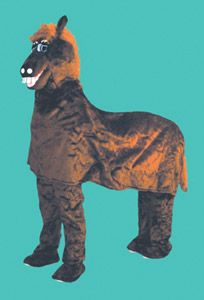 You ring the bell, and when the door opens you walk inside. "I'm afraid Mr. Tramplin's still in the bath," says someone. You note the remark down. You've come to do a cultural interview for a highbrow publication, and you have a lot of space to fill. You sit down to wait in a respectful attitude. You assume your readers will guess that when you say you you mean not they but I.
You ring the bell, and when the door opens you walk inside. "I'm afraid Mr. Tramplin's still in the bath," says someone. You note the remark down. You've come to do a cultural interview for a highbrow publication, and you have a lot of space to fill. You sit down to wait in a respectful attitude. You assume your readers will guess that when you say you you mean not they but I.
You just have time to glance round the room and notice a calendar, a set of telephone directories, and several ashtrays, before Victor Tramplin comes in. He apologises modestly for keeping you waiting. To hear him you would scarcely think he was one of the great old personalities of the cinema. It seems incredible that this quiet, modest man has been playing the front legs of film monsters for so long that he has become accepted by intellectuals as a front legs of profound natural integrity.
"Mr. Tramplin" you say," over a career which has included such rôles as the front legs of the pterodactyl in It came from Pre-historic Space, the front legs of the fly in The Monster Fly, and the front legs of the giant bat in Secrets of the Horror Crypt, you have become accepted by intellectual cinéastes as a front legs of profound natural integrity."
"Yes," he replies, and you begin to see a new side to his character you hadn't suspected before, the man of action hacking his way through the jungle of cultural verbiage with a decisive monosyllable.
"Mr. Tramplin," you go on, "may I ask you a very personal question? What do you think about the place of the artist in society?"
He doesn't answer at once. He looks at you with something like puzzlement in his eyes, almost blankly, and you realise that here is another aspect of Tramplin the front legs — the plain man facing up to the immense question-marks of our times and not letting himself be rushed. "What do I think about the place of the artist in society?" he repeats, and it is a blow struck for the plain man everywhere against the tyranny of his inquisitors. "Why, I think he's got a damn' nice little place out there."
You write it down. This is another side to the man. The plain citizen defending himself against the jargon of the experts can also become the expert himself uttering the calm inscrutable wisdom of the oracle.
Sudddenly he laughs and you realise it was all a joke — a wry, self-depreciatory comment, turning, he explains, on the double meaning of "place."
This is yet another Tramplin — Tramplin the eternal clown, mocking the world from the sawdust ring of his soul. "Sorry for the gag," he says, and his sorrow — the pathos of the clown behind the grinning grease?paint — is for all the tragedy of the human condition.
"Would you like a drink?" he asks, with simple, unforced generosity. You watch him as he mixes it, and see not the dreamer of the Horror Crypt but the practical man who could have carved out a career for himself as a chemist or a soda?jerk. Another side to his character, you realise, and begin to understand that his character is as rich in sides as a threepenny?bit.
And which side, you ask yourself, is the real Tramplin? You search for some sort of clue to his true self. Is there one in the way he dresses, with socks inside his shoes and grey trousers? Is there one in the story of his childhood— brought up by his father and mother and educated at school, an experience which was to leave the multiplication tables and the elements of reading and writing deeply etched upon his memory? Or is it in something that Ken Knocker, an old friend from boyhood days, once said to him?
"Vic," he said, "thanks a lot for the meal. I'll be seeing you."
"Well," says Tramplin finally, "I have to go and see a about a dog." Perhaps this is the real Tramplin, you feel — the man who flees human contact and seeks the rich and simple companionship of the animal kingdom. As you leave, you snatch one of Tramplin's buttons as a keepsake. But you take with it something more precious still — the knowledge that the enigma of Victor Tramplin's personality remains as inviolate as when you arrived.